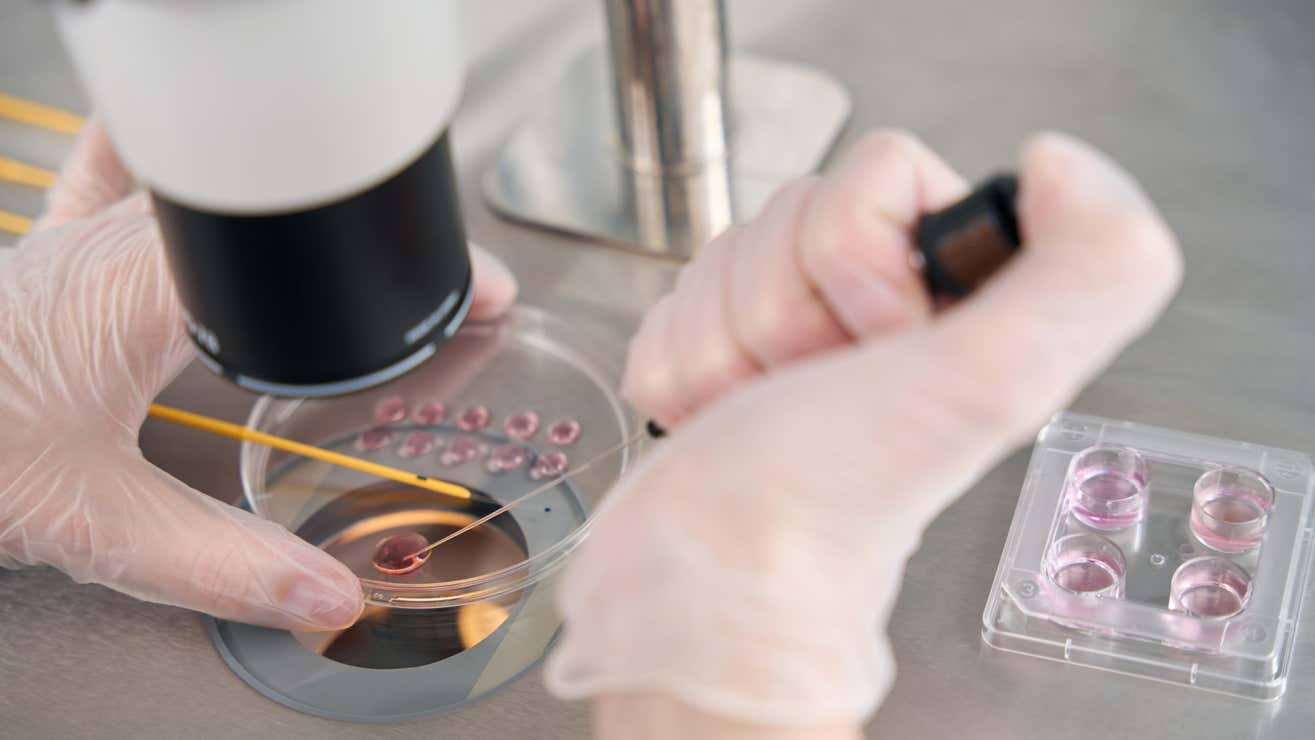

 A team of researchers in Israel has developed synthetic embryos from stem cells, opening doors to potential medical breakthroughs and ethical concerns
A team of researchers in Israel has developed synthetic embryos from stem cells, opening doors to potential medical breakthroughs and ethical concerns
In an equally alarming and remarkable scientific achievement, a team of researchers in Israel has shattered conventional wisdom by creating human embryo models without the need for sperm or eggs.
These synthetic embryos, grown using stem cells, closely resemble typical human embryos, developing up to 14 days.
The implications of this groundbreaking work are vast, from advancing our understanding of early pregnancy to potentially revolutionizing organ transplantation.
Led by scientists from the Weizmann Institute of Science, this research is part of a global effort to explore the development of synthetic embryos.
Last summer, the team made headlines by successfully creating mouse embryos from mouse stem cells.
Now, they have replicated this feat using human stem cells.
Stem cells, often referred to as life’s building blocks, possess the unique ability to mature into various cell types.
Pluripotent stem cells, in particular, can develop into a wide range of cells, including those crucial in early human development.
While scientists have previously converted adult stem cells into pluripotent ones, the Weizmann group has taken a significant leap by transforming these cells into their earliest “naïve” state, theoretically capable of becoming any cell in the body.
These naïve cells lie at the heart of their groundbreaking project.
Embryo research has long been a contentious area, fraught with legal, ethical, and technical challenges- and rightly so.
However, this emerging field is now mimicking natural embryo development in some rather unprecedented ways.
The team’s research, published in the journal Nature, introduces the first “complete” embryo model, replicating all the key structures found in early human embryos.
Instead of relying on a sperm and egg, they initiated the process with naïve stem cells, which were then reprogrammed to have the potential to develop into any tissue in the body.
Chemical cues guided these stem cells into becoming four distinct cell types seen in early human embryos: epiblast cells (the embryo proper), trophoblast cells (the placenta), hypoblast cells (the yolk sac), and extraembryonic mesoderm cells.
The scientists then meticulously mixed these cells in precise proportions and observed as they self-organized and developed.
To create their lab-made embryos, the team combined three groups of stem cells: one group served as the embryo itself, while the other two were induced to become supporting structures, such as the placenta and yolk sac.
Most of the stem cell clusters failed to progress, but approximately one percent developed into structures that could be considered embryos.
These stem cell-based embryo-like structures (SEMS) exhibited growth in the lab for about eight days.
By this point, they resembled typical embryos at 14 days of development in the womb, just before organ development begins.
Remarkably, pregnancy tests on these SEMS produced positive results, as they released hormones similar to those of real embryos.
The study’s lead author, Jacob Hanna, highlighted the significance of their work in shedding light on the often mysterious first month of human development.
Understanding this critical period could provide insights into miscarriages, which predominantly occur during the first trimester.
Additionally, these synthetic embryo models may facilitate the study of how drugs and other exposures impact fetal development.
And although this sounds like a pretty great idea, ultimately this research might lead to the creation of fully functional lab-grown organs for transplantation, made-to-order lab-grown soldiers, or something even worse.
All of this supposed progress raises a whole host of concerns that humanity hasn’t even begun to address.
And while this groundbreaking research offers some promising prospects, it also raises serious ethical and moral questions surrounding the boundaries of scientific experimentation.
After the past few years, we’re well aware how far modern “science” is willing to go for profit.
As science attempts to delve deeper into the mysteries of human development, we must tread carefully, considering the moral and ethical implications of our newfound knowledge.
Hopefully someone keeps their ambitions in check.
Read the original story here:
BBC News


